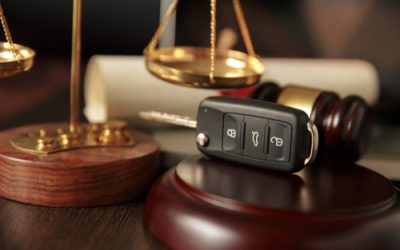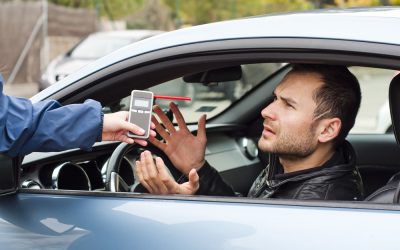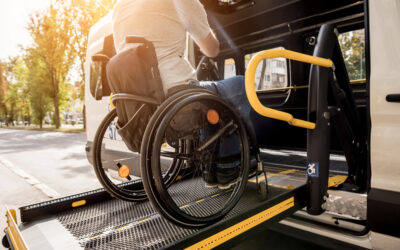23152 (b) It is unlawful for a person who has 0.08 percent or more, by weight, of alcohol in his or her blood to drive a vehicle.
If you’re arrested on suspicion of driving under the influence in California of alcohol, you could face a charge under CA Vehicle Code 23152 (b) – Driving With a Blood Alcohol of .08% or Greater.
Prosecutors do not have to prove you were impaired under this law. If they can show your blood alcohol level was at or over the legal limit, it does not matter if you felt sober or even if your driving was fine. You can still face conviction.
If you are fighting a DUI charge, you can secure legal representation to protect your rights and future. A Los Angeles DUI lawyer with our firm can review your legal options and determine how we can defend you against the charges in your drunk driving case. Call or contact us online for a legal consultation.
An Overview of CA Vehicle Code 23152 (b) – Driving With a Blood Alcohol of .08% or Greater
California Vehicle Code § 23152(b) aims to prevent motorists from driving under the influence, specifically when their blood alcohol concentration (BAC) level meets or exceeds 0.08%, the legal limit. This limit applies to all non-commercial adult drivers age 21 (the legal drinking age) and above.
It must be noted that the BAC is lower for commercial drivers and underage drivers. For commercial drivers, the legal limit is even lower, set at 0.04%. Minors (drivers under 21) face a zero-tolerance policy, where any detectable amount of alcohol can lead to DUI charges. They are legally drunk if their BAC reaches 0.01%.
What Does BAC Mean?
BAC stands for blood alcohol concentration, but it also can stand for blood alcohol content. It is a measurement of how much alcohol is in your blood. A person’s BAC level affects their ability to think, react, and drive safely.
Why Is 0.08% the Legal Limit?
The 0.08% BAC legal limit in California was set because researchers have found that most people are significantly impaired at this level. Their ability to see clearly, react quickly, and make good decisions is reduced, making driving unsafe not just for them but for other road users, too.
The limit is the same for all drivers, but various factors unique to each person can affect BAC levels. These factors include:
- Body weight
- Gender
- Metabolism rate (how fast the body processes the alcohol)
- The amount of alcohol consumed
- The time frame over which alcohol is consumed
For example, a smaller person may reach a higher BAC faster than a larger person after consuming the same amount of alcohol. Physical and mental functioning can change at various BAC levels.
Per Healthline, by the time drinkers’ BAC reaches 0.08%, they can exhibit poor coordination, an inability to concentrate, slowed reactions or cognitive processing, and even short-term memory loss. All of these effects are signs of intoxication under the law’s standards.
How Is BAC Measured?
Law enforcement can measure BAC with various tests that check breath samples or blood or urine samples. The most common method police use during traffic stops for suspected DUI is the breathalyzer test. This device estimates your BAC based on the amount of alcohol in your breath.
Drivers who refuse a breathalyzer test in California can face additional charges in a DUI matter.
They could face an automatic suspension of their driver’s license for at least one year, as mandated by state law. This is part of the “implied consent” laws that drivers agree to by using California roads, essentially consenting to BAC testing when a police officer lawfully requests it.
You Can Face Two Charges for a BAC of 0.08% or Higher
If you’re caught driving with a BAC of 0.08% or higher in California, you face serious consequences if convicted of a DUI. First, if law enforcement charges you with violating CA Vehicle Code § 23152(b), it can also charge you under CA Vehicle Code § 23152(a). Both subsections define different aspects of DUI offenses.
CA Vehicle Code § 23152(a): This subsection states it is illegal to drive under the influence of alcohol in California. “Under the influence” is defined by one’s physical or mental abilities being impaired to the extent that they can no longer drive, as well as a cautious sober person would under similar circumstances. This standard is somewhat subjective and does not specify a particular blood alcohol concentration (BAC).
Usually, law enforcement’s observations are the basis for determining someone’s impairment, such as a motorist’s physical appearance, behavior, and performance on DUI field sobriety tests (FSTs).
CA Vehicle Code § 23152(b): This subsection specifically targets the BAC level and makes it illegal to drive a vehicle if one’s BAC is 0.08% or higher. This part of the law relies on an objective measure, not law enforcement’s opinion of a motorist’s impairment.
Instead, it focuses solely on the chemical test results of a DUI blood test, DUI breath test, or a urine test. If the test shows a BAC of 0.08% or higher, you can be charged with DUI regardless of your actual level of impairment at the time.
Penalties for Driving With a Blood Alcohol of 0.08% or Higher
If you are charged with both subsections under the law, you will only have one conviction if you cannot get the criminal charges reduced or dismissed.
If this is your first DUI, you face:
- Up to six months in the county jail
- A fine of up to $1,000
- Six-month driver’s license suspension
- Installation of an ignition interlock device (IID)
- Three to five years of summary probation
You also will have to complete a mandatory DUI education program for at least three months. The time could be longer if your BAC exceeds the legal limit.
If this violation is your second DUI in 10 years, you will face:
- Up to a year in the county jail
- Up to $1,000 in fines
- Two-year driver’s license suspension
- Three to five years of summary probation
- A mandatory DUI education program for 18 months or more (e.g., alcohol or drug treatment programs)
If this is your third-time DUI in 10 years, you face:
- Up to a year in the county jail
- Up to $1,000 in fines, plus other administrative penalties
- Three-year driver’s license suspension
- Three to five years of summary probation
- A mandatory DUI education program for 18 months or more
Penalties in drunk and drugged driving cases can also include higher auto insurance rates or possible termination of coverage, depending on the insurer. Offenders will also get two negligent operator points on their license from California’s Department of Motor Vehicles (DMV). Driving under the influence of alcohol and drugs is a two-point conviction.
Violating CA Vehicle Code § 23152(b) Can Lead to Other DUI Charges
Offenders who violate CA Vehicle Code § 23152(b) can face charges for violating other laws, especially for combined drug and alcohol use or if they injure or fatally wound someone while behind the wheel. Other DUI laws in California include:
- California Vehicle Code § 23152(f): This law makes it illegal to drive under the influence of any drug.
- California Vehicle Code § 23152(g): This section makes it illegal to drive under the combined influence of alcohol and drugs.
- California Vehicle Code § 23153: This statute, often referred to as DUI causing injury, addresses situations where a DUI results in injury to a third party. Penalties under this statute are more severe than those for § 23152.
Talk With a Lawyer Who Can Help You Weigh Your Options
The penalties for repeat offenders get tougher with each offense. People who continue to break the law can face longer county jail time and pay larger fines. You can consult with our Los Angeles DUI attorney to review your legal options.
We have decades of experience and handle these cases regularly, so we can tell you what to expect. Call us today for an initial consultation.
How Do Prosecutors Prove You Were Driving With a BAC of 0.08% or Higher?
The prosecution has the burden of proof in a criminal case. This means they must prove all charges against you, and it is our job to find holes in their case that help you reach your best outcome. Before they can convict, the prosecutor must prove two things:
- You drove a vehicle.
- Your blood alcohol content level was over the legal limit of .08% or higher when you drove.
An effective defense strategy will focus on the second point. The prosecution can use the results of your blood or breath test to prove its case. If the results of that test can be called into question, you could be acquitted. This is usually done one of two ways:
- Challenging the BAC test result’s accuracy: Breathalyzer tests may not be valid if the machine was not calibrated properly or if it has a history of skewing high. Blood tests may not be valid if the blood sample is not handled according to state-mandated procedures. We can also challenge field sobriety test inaccuracies, as various conditions can affect test results (e.g., road conditions, weather, any physical or medical conditions you have).
- Challenging the test’s timing: California law presumes that a test is accurate if it is given within three hours of pulling you over for a traffic stop. In other words, if you were drunk three hours after being stopped, you must have been drunk while behind the wheel, too. However, we may be able to use a rising BAC defense to show your blood alcohol level increased for hours after your last drink. If the test is delayed, we can challenge it.
- Challenging your traffic stop and subsequent arrest: Police need a valid reason to pull you over. They also must follow protocols in searching your car and arresting you and cannot violate your constitutional rights during questioning. Our DUI lawyer will know which legal defense is most likely to work in your case.
We Can Collect Evidence to Establish Your Case
We can build your legal defense on the direct and circumstantial evidence in your case. This includes:
- Maintenance and calibration records for BAC testing devices can show potential flaws or inaccuracies in the equipment used during testing, undermining the reliability of the BAC readings.
- Medical records can document health conditions that affected your breathalyzer test results or ability to pass a field sobriety test.
- Video footage from police body cameras, dashcams, or cell phones can be critical in showing discrepancies between an officer’s report and what actually occurred during the traffic stop or field sobriety tests.
- Witness testimony from passengers or bystanders who observed your driving and behavior can also support claims that you were not impaired.
- Expert testimony can challenge the accuracy of BAC testing equipment or the interpretation of test results.
These pieces of evidence are instrumental in challenging the prosecution’s claims about your alcohol impairment. We will also review the prosecution’s case against you and determine if there is insufficient evidence to proceed with a case.
Other Ways Our Team Can Lead Your Case Against a DUI Charge
Our legal team will offer support beyond just contesting your charges. We help our clients in many ways when they are facing DUI or other legal issues. We offer:
- Legal guidance: We advise our clients on the legal process, explaining the charges, potential outcomes, and legal options available. We also help them understand complex legal jargon and procedures.
- Emotional support from the start to the end of your case: Facing drunk driving charges can be stressful. Lawyers often provide emotional support and reassurance, helping clients stay informed and manage the anxiety associated with legal proceedings.
- Negotiation: Lawyers often negotiate with prosecutors to reduce charges or penalties, such as converting jail time into community service or probation or negotiating plea bargains that might result in lesser charges.
- Representation in court: Our criminal defense attorneys represent clients in court, presenting evidence, cross-examining witnesses, and arguing on behalf of the client to judges and juries.
- License issues and preparation of documents: In DUI cases, we can help manage administrative hearings with the Department of Motor Vehicles (DMV) to prevent a license suspension or restore our clients’ driving privileges. We also will prepare and file all necessary legal documents on time.
Call for Help With a Blood Alcohol of 0.08% or Higher DUI Charge
If you are a non-commercial driver of the legal drinking age in California, and your BAC is 0.08% or higher, you are driving under the influence (DUI), which is illegal. You can be charged under CA Code 23152 (b), but your problems may not stop there. Your case can involve multiple charges and complex legal challenges that our attorney can handle for you.
You don’t have to face the prosecution alone. Our Los Angeles DUI lawyers can represent you and fight to protect your rights and future. Call us today or contact us online to review your legal options and next steps during a legal consultation.







